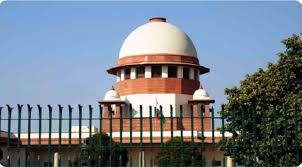The Maharashtra Regional and Town Planning Act, 1966 (hereinafter referred to as ‘MRTP Act, 1966’) is again an important piece of legislation with which we are presently concerned. The MRTP Act, 1966 was enacted in order to have a planned development in the State of Maharashtra. An amendment was brought in the MRTP Act, 1966, in the year 1995 whereby SRA was given the status of Planning Authority so far as slums were concerned. The State Government under the 1966 Act has got powers to frame what is called Development Control Regulations (DCR) for the purposes of implementation of any scheme, project, etc which would include development of a slum. The DCR Regulation under which the present rehabilitation of slum was to be undertaken was Regulation 33(10) of DCR, 1991. The present slum area with which we are concerned is at Lower Parel Division in J.R. Boricha Marg and is notified as a “slum” under the 1971 Act and had 1672 residential tenements. As per the scheme of SRA more than 70 percent of the eligible hutment dwellers were members of the federation, i.e., present respondent no.6 which were to choose its developer and take the scheme forward under the overall supervision of SRA. (Para 7)
In accordance with the procedure given under the DCR, 1991 the majority section of the slum dwellers, in the present case, who were earlier divided into different independent societies, got together and formed a society called “Shramik Ekta Co-Operative Housing Federation” (respondent No. 6, herein), which we here refer as the “Federation”. The Federation in turn appointed Lokhandwala Kataria Constructions (respondent No. 5) as its Developer. SRA consequently issued a Letter of Intent (LoI) on 16.04.2005, in favour of the Developer, approving the proposed Slum Rehabilitation Scheme, submitted before them. (Para 8)
Private agreements cannot be enforced in Slum Rehabilitation Schemes as against the statutory mandate of the SRA. (Para 23)
Thus, SRA has to act in terms of its own policies and circulars without allowing private or contractual interests to prevail over public policy especially a policy which is welfare based. Apart from this, it is pertinent to point out that the Circular No. 162 was issued on 23.10.2015. The appellant society though has filed two Writ Petitions subsequently in connection with the procedure for allotment undertaken by the SRA, yet it has not challenged the validity of Circular No. 162, instead it has sought to impose its private contractual rights over and above the statutory provisions which as we have seen above, is not permissible. (Para 25)
SUPREME COURT OF INDIA
2023 STPL(Web) 490 SC
[2023 INSC 1080]
Sayunkta Sangarsh Samiti & Anr. Vs. State Of Maharashtra & Ors.
Civil Appeal No. 1359 of 2023-Decided on 15-12-2023
https://stpllaw.in/wp-content/uploads/2024/01/2023-STPLWeb-490-SC.pdf







